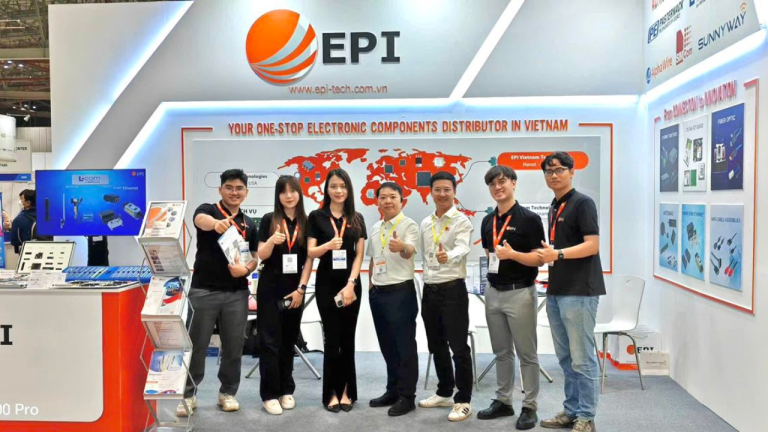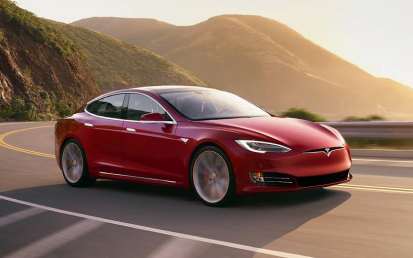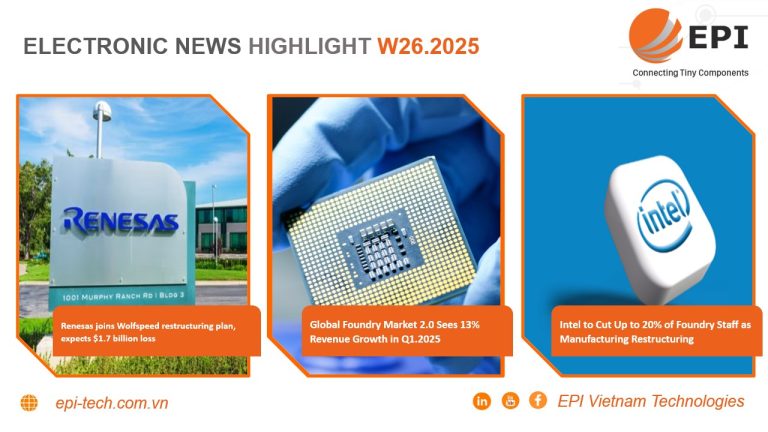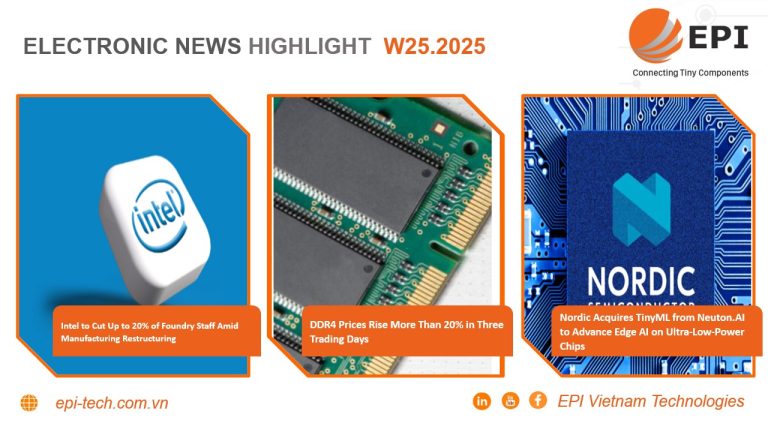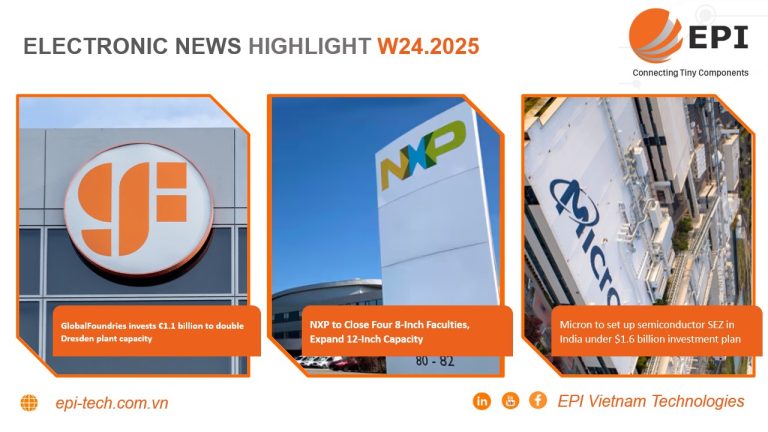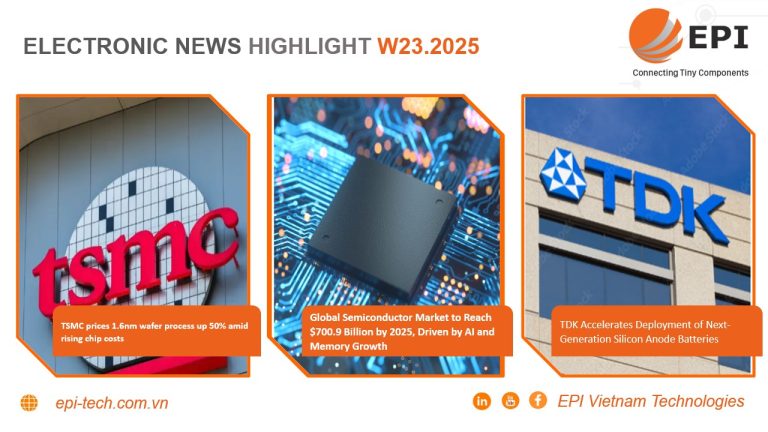ELECTRONICS NEWS HIGHLIGHT W3.2024
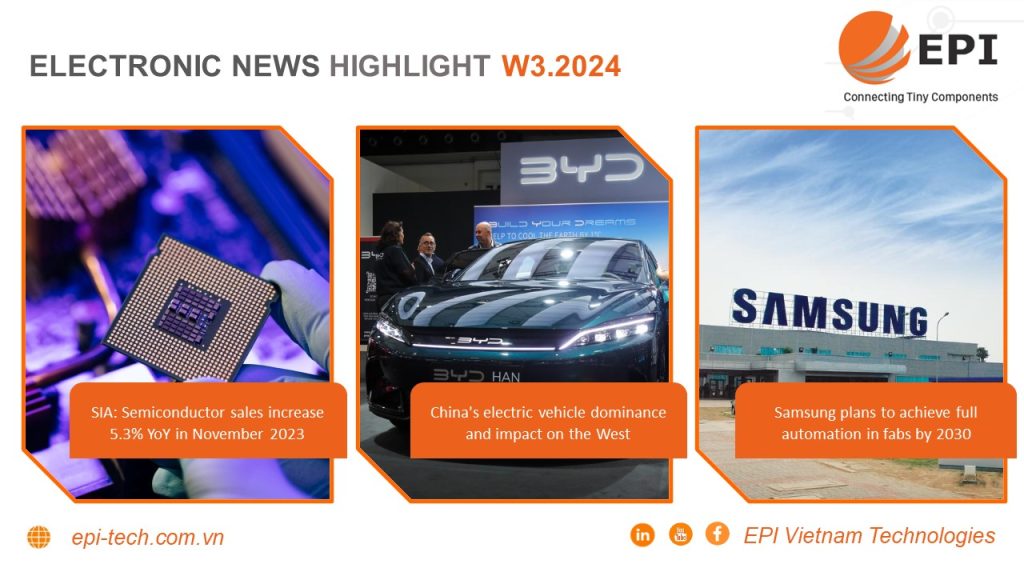
1. SIA: Semiconductor sales increase 5.3% YoY in November 2023
According to SIA’s latest report, the global semiconductor industry’s revenue in November 2023 totaled 48 billion USD, an increase of 5.3% compared to the total of 45.6 billion USD in November 2022 and an increase of 2 .9% compared to a total of 46.6 billion USD in October 2023.
From a regional perspective, sales increased strongly in China (7.6%), and Asia (7.1%) and the Americas (3.5%). Areas that are receiving the most investment in factories and production facilities in the world. With a series of large electrical and electronic companies in the world, and an output of up to billions per year for consumer products such as phones, televisions, computers, cars, etc. These areas are promising continue to be the driving force for the world’s electronics manufacturing and production industry.
“Global semiconductor sales in November 2023 were the first annual increase since August 2022, showing continued growth in the global chip market as we enter the new year and The global semiconductor market is expected to achieve double-digit growth in 2024” SIA CEO John Neuffer said.
Learn more: Semiconductor sales up 5.3% year-on-year in November 2023
2. China’s electric vehicle dominance and impact on the West
China’s electric vehicle market is growing rapidly, with sales of new electric vehicles increasing 37% year-on-year in the first 11 months of 2023. This has placed enormous pressure on manufacturers from the West.
BYD, the Chinese electric vehicle giant, overtook Tesla to become the world’s best-selling electric vehicle manufacturer in the fourth quarter of 2023. BYD overtook Tesla in the fourth quarter of 2023, selling 526,400 vehicles compared with Tesla’s 484,500. BYD’s achievement highlights the strength of Chinese automakers in the electric vehicle sector. Besides, China also dominates the electric bus sector with more than 90% of global sales by 2022, and more than 350,000 units sold.
This dominance is due to early adoption, supportive government policies and strong domestic manufacturing capabilities. China can produce more than 70% of the world’s lithium-ion batteries and has complete control from the refining, processing and production stage. Furthermore, this country also possesses many important minerals to make lithium-ion batteries.
Faced with this problem, Western manufacturers face challenges due to heavy reliance on components sourced from China, raising concerns about supply chain security, disruption, price fluctuations and political tensions.
Learn more: China’s EV Dominance Stresses Western Supply Chain
3. Samsung plans to achieve full automation in fabs by 2030
As per recent reports, Samsung Electronics has initiated a groundbreaking venture in the development of an intelligent sensor system, signaling a pivotal shift in the operational dynamics of semiconductor plants. This endeavor is directed towards enhancing productivity and steering the factories towards comprehensive automation by the year 2030. The primary focus of this advanced system lies in its application for real-time monitoring and analysis of the intricate production processes. Impressively, the system has demonstrated a notable advancement, showcasing the capability to autonomously process a spectrum of consistent control commands.
Samsung’s strategic vision encompasses the eradication of manual operational interventions within its chip manufacturing facilities, setting a robust target for achieving complete automation within the said factories by the culmination of the decade. The overarching goal is to transform these semiconductor production facilities into fully unmanned, autonomous entities by the year 2030.
Realizing this ambitious vision necessitates the development of intricate systems proficient in handling extensive volumes of data and autonomously optimizing the performance of intricate devices within the semiconductor production framework. At the core of this transformative plan is the smart sensor system, acknowledged as a critical component that is expected to play a pivotal role in transitioning these smart, fully automated factories from vision to reality. In essence, Samsung’s pursuit of cutting-edge technology and comprehensive automation signifies a paradigm shift in the semiconductor manufacturing landscape.
Learn more: Samsung plans to achieve full automation in fabs by 2030



 English
English  Tiếng Việt
Tiếng Việt 




